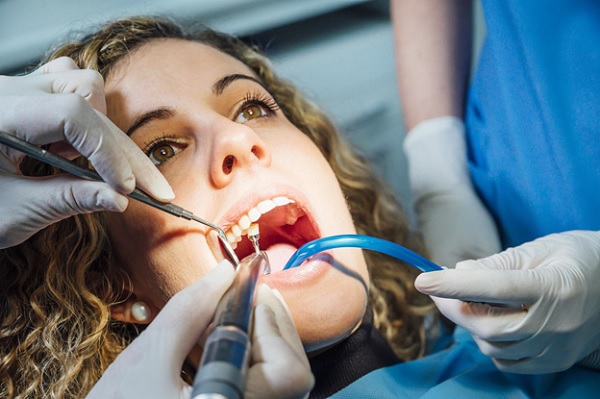Tucson, AZ Dentist Discusses the Difference Between Routine Dental Cleaning and Deep Dental Cleaning

Dental cleanings can be used to maintain oral hygiene, but did you know that there are many types of dental cleanings? Two of the most common types of dental cleanings are routine dental cleanings and deeper dental cleanings (root scaling and planing).
Besides getting rid of the unwanted food, plaque, and tartar deposits that cause cavities, gum disease, and other oral health problems, the primary objectives of each treatment differ:
- Routine Cleaning: Removes plaque and tartar around the gumline. Recommended twice a year for healthy patients to prevent gum disease and other oral health conditions.
- Scaling and Root Planing: Cleans above and below the gumline. Recommended if your gums, bones, and surrounding tissues are impaired from periodontal disease.
In this blog, Tucson, AZ, dentist Dr. Payam K. Asadi deep dives and explains the major differences between these two types of professional dental cleanings.
Signs That It’s Time for Cleaning
Despite the need for regular dental cleanings, 42% of Americans report that they do not visit their dentists as much as they would like. Is it time for a dental cleaning? Here are some signs that show that it might be time!
Routine Cleaning
Here are some signs that it may be time for a routine cleaning and checkup:
- You haven’t visited the dentist in over six months.
- Your smile looks duller.
- Your teeth feel sensitive.
Scaling and Root Planing
Dentists typically use scaling and root planing to treat chronic periodontal (gum) disease. Signs of this common condition include:
- Your gums are swollen or bleeding.
- Your breath stinks.
- You notice hard boils or bumps on the gums.
- You are suffering from irritation that persists for more than two weeks.
Differences in Dental Cleaning Experiences
Generally speaking, scaling and root planing treatment is more extensive and takes more time to complete.
Routine Cleaning
Dental hygienists can complete a dental cleaning session in less than an hour. Patients that suffer from anxiety may benefit from light sedation (such as laughing gas), but anesthesia is typically not needed.
Scaling and Root Planing
Scaling and root planing is typically broken up into four sessions to treat each quadrant in the mouth but can be completed in one session (if sedation is used). Because this treatment can feel uncomfortable, anesthesia is recommended.
Adverse Effects
Even though patients may experience mild side effects after treatment, refusing treatment can lead to more severe consequences, including:
- Severe gum disease
- Gum recession
- Loose and moving teeth
- Bone and tooth loss
Regular dental care can help reduce the following side effects or negate the need for more extensive treatment:
Routine Cleaning
After tartar is removed from teeth and the gum line, it is exposed to air and foods again. If a person’s teeth and gums were covered with plaque and tartar for quite some time, he or she might experience sensitivity or bleeding. However, patients can go about their routine after this type of cleaning.
Scaling and Root Planing
After scaling and root planing, patients may experience an infection or sensitive gums. Preceding treatment, patients are encouraged to rinse their mouths with warm salt water or a prescribed antibiotic rinse to reduce the risk of infection.
Also, brushing with desensitizing toothpaste can help numb the gums. Avoid irritating the gums by taking these precautions:
- Hot drinks and foods for two days
- Crunchy foods for four days
- Sugar for several days (sugar-free treats are ok)
After several days, patients should return to their everyday life without restrictions.
Schedule Your Next Routine Dental Cleaning in Tucson, AZ
Whether you need a simple dental cleaning or a more in-depth, Dr. Asadi and his team help patients achieve a more hygienic, healthier smile. Learn more about your dental cleaning options by scheduling an appointment at Advanced Family Dentistry. Call (520) 353-3002 or conveniently book an appointment online without hesitation.


